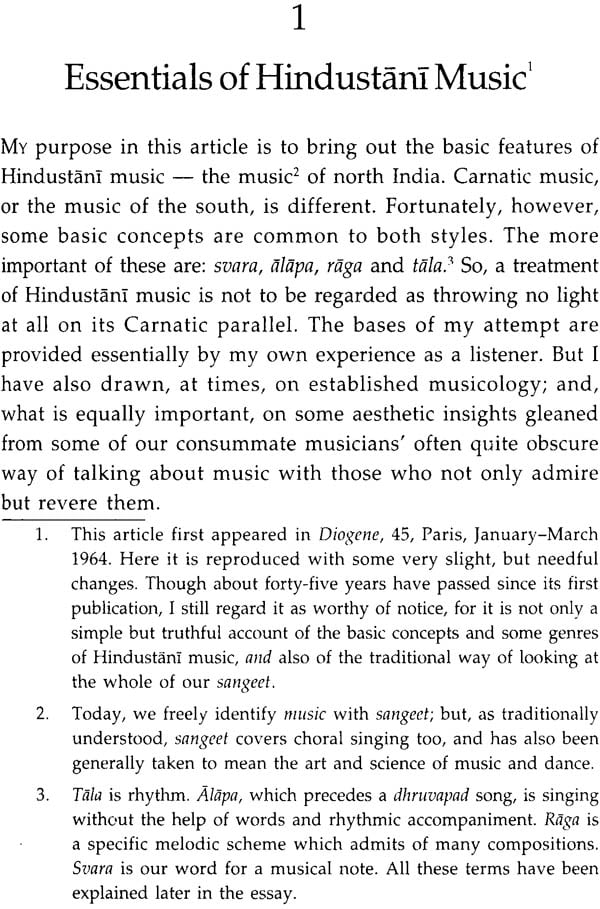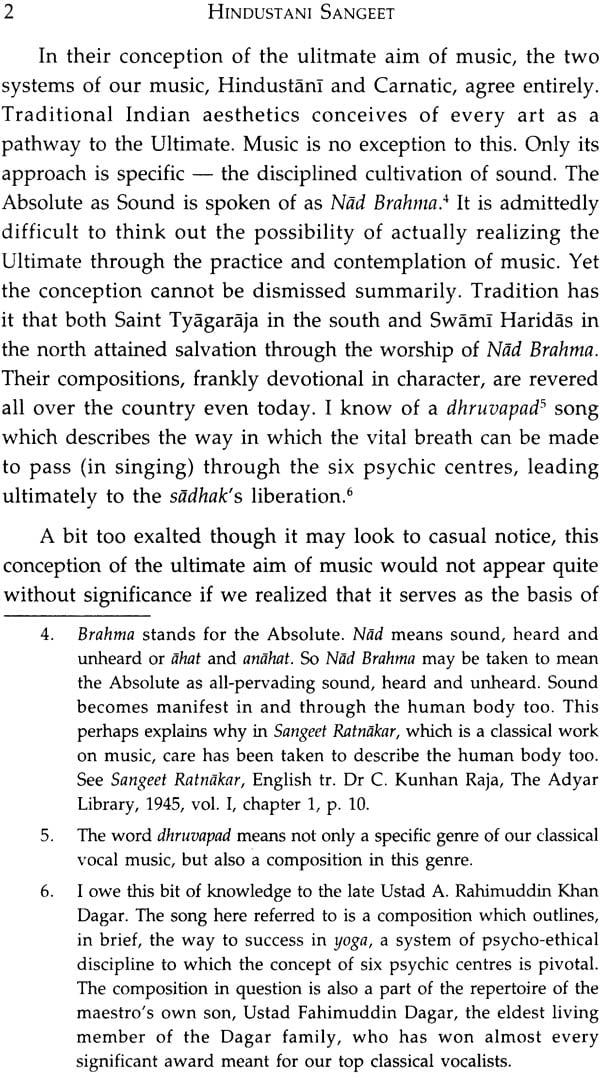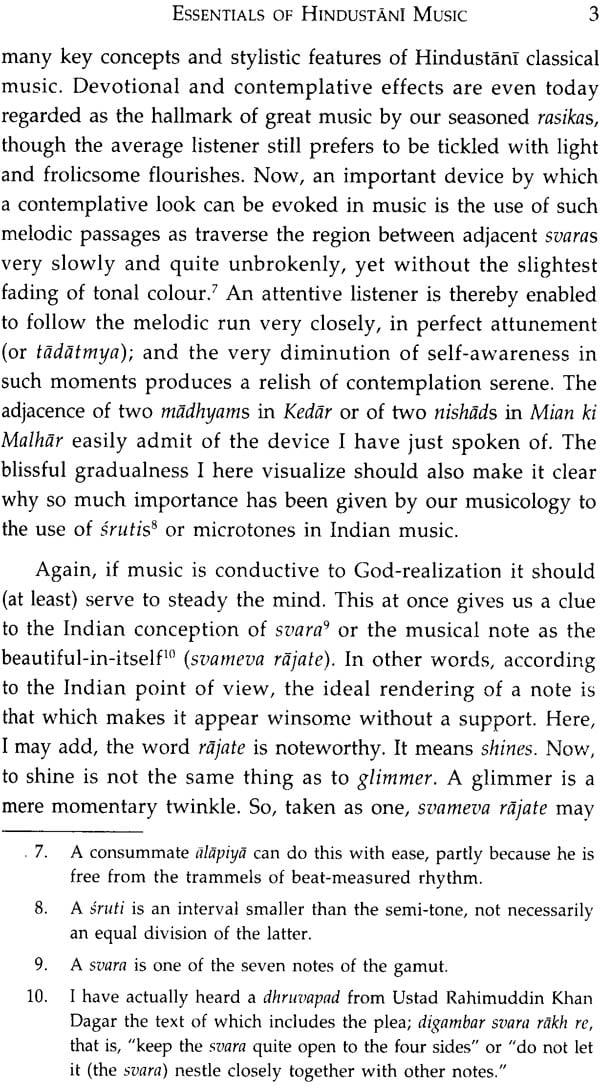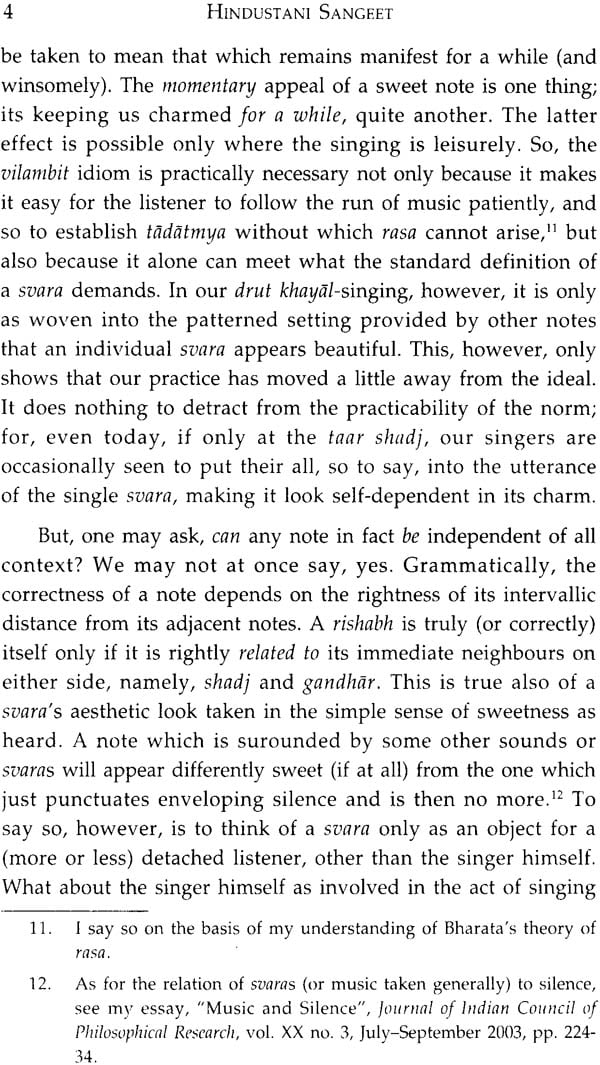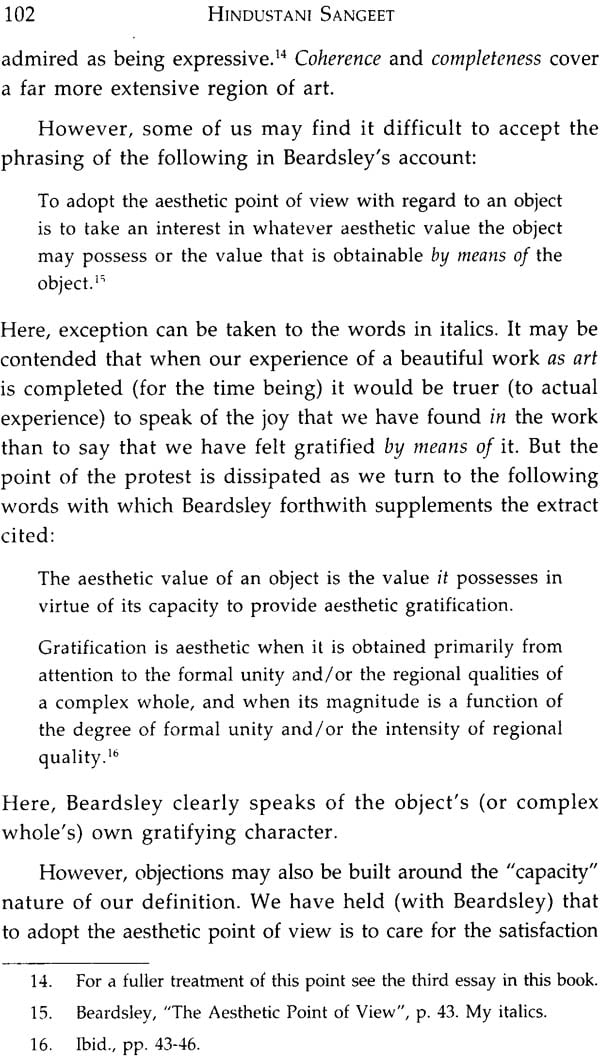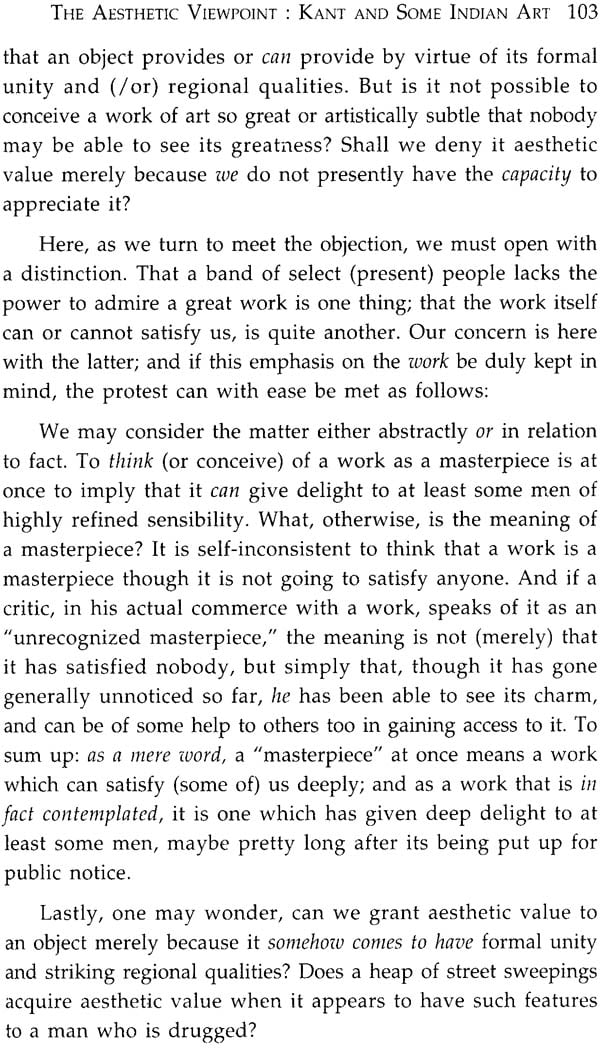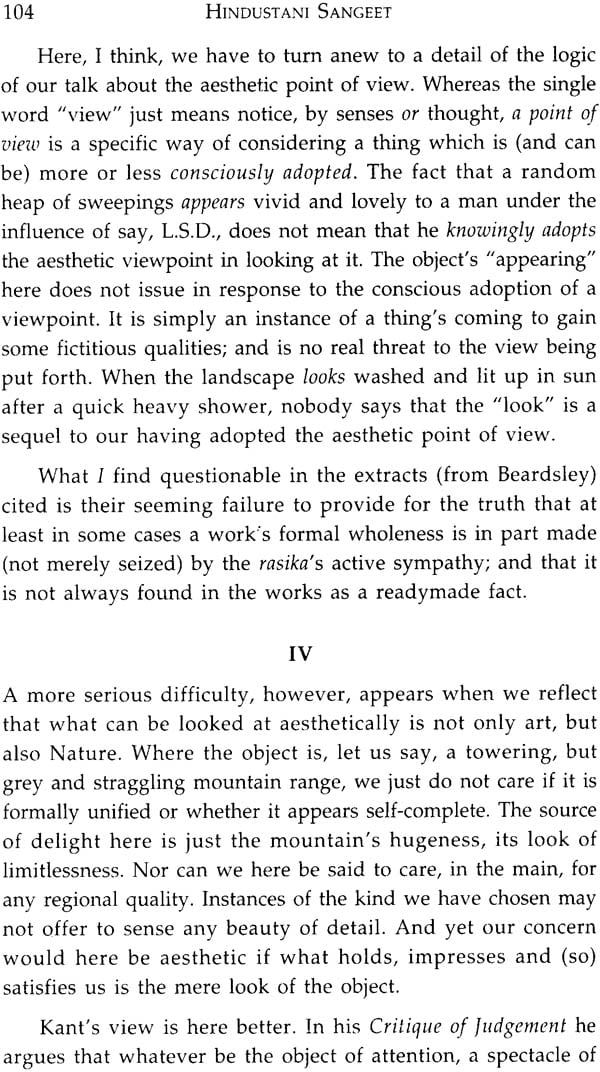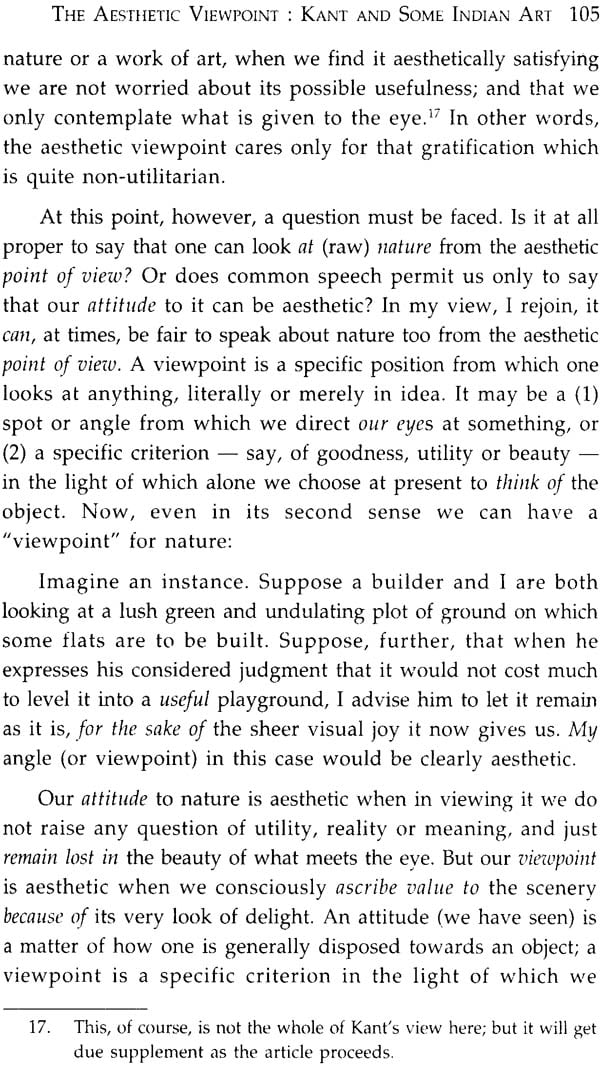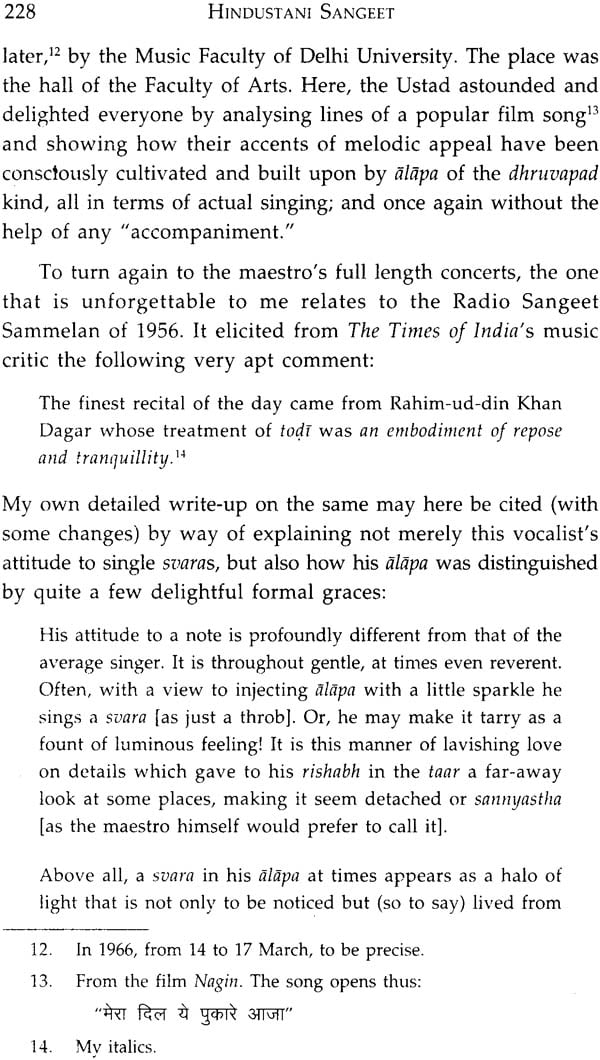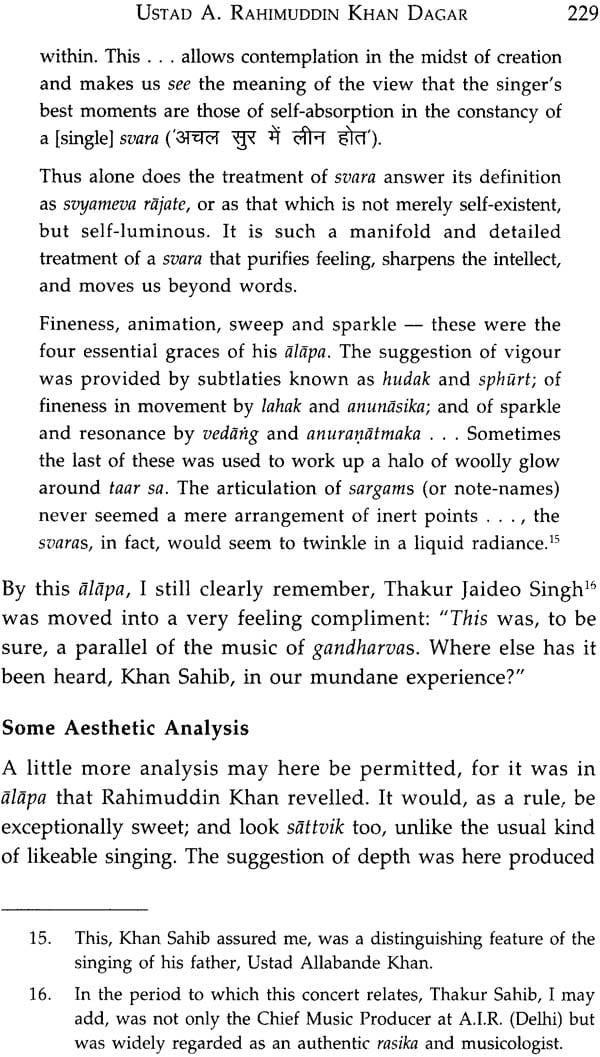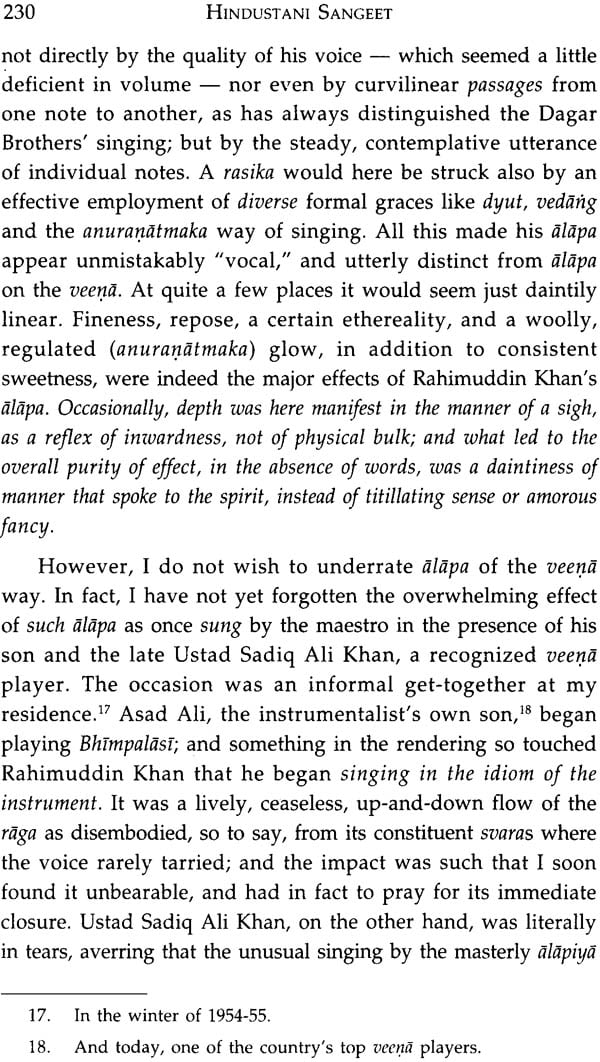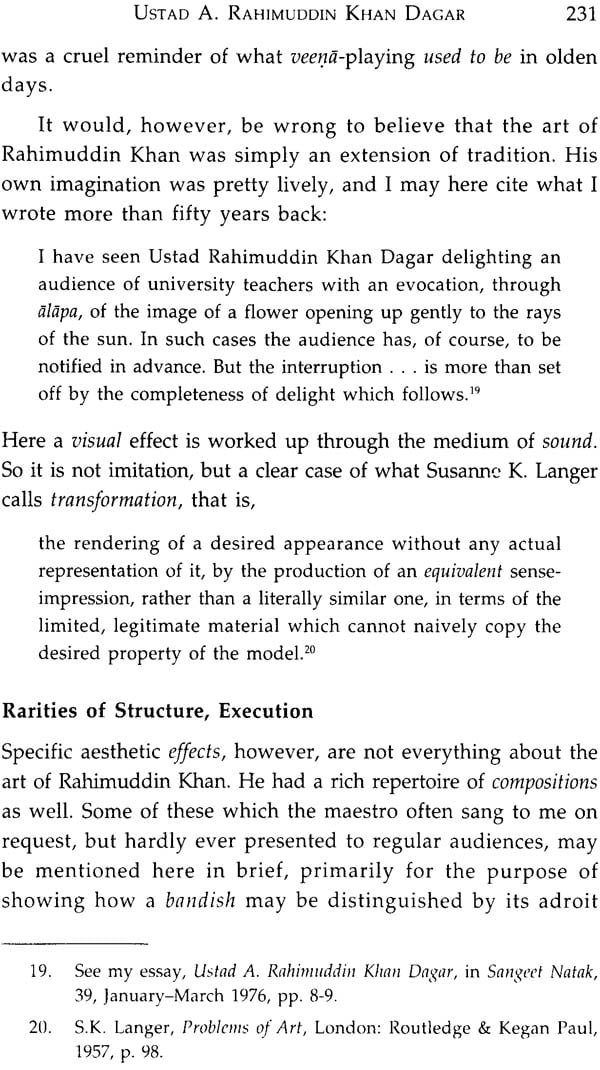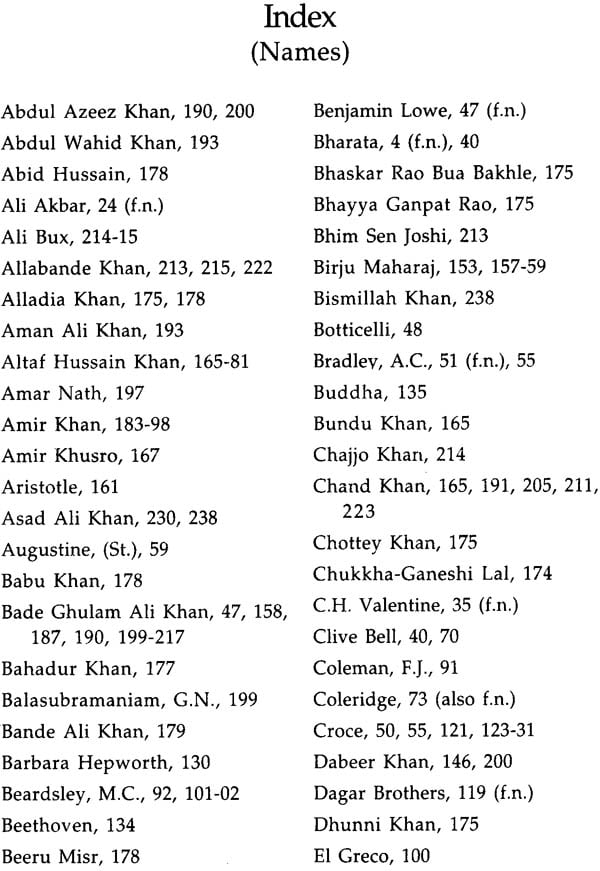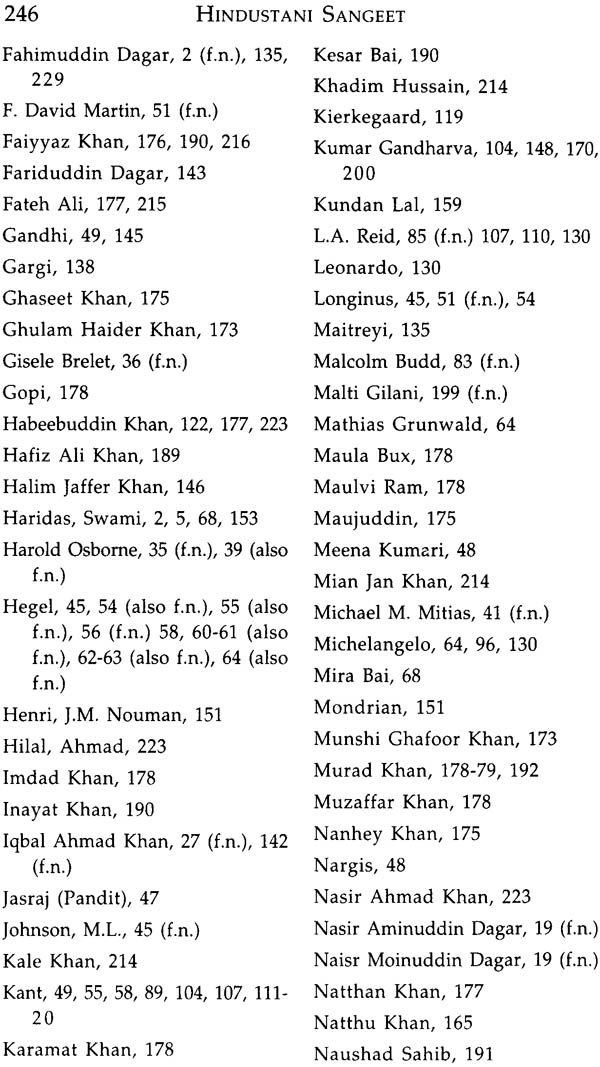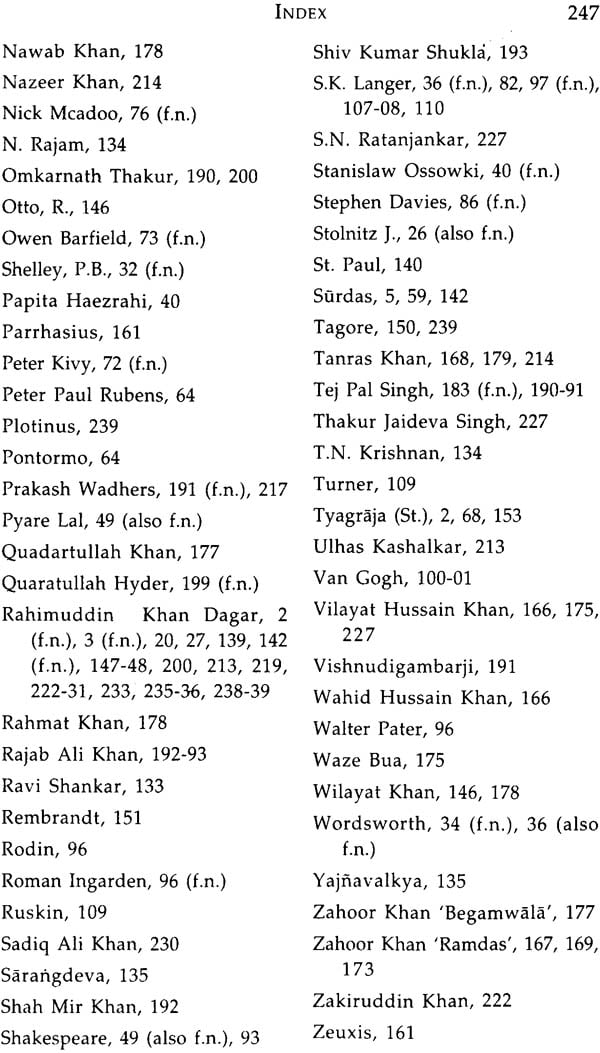
Hindustani Sangeet (Some Perspectives Some Performers)
Book Specification
| Item Code: | IHJ089 |
| Author: | S.K. Saxena |
| Publisher: | D. K. Printworld and Sangeet Natak Akademi |
| Language: | English |
| Edition: | 2009 |
| ISBN: | 8124605394 |
| Pages: | 249 |
| Cover: | Hardcover |
| Other Details | 8.8 inch X 5.6 inch |
| Weight | 510 gm |
Book Description
There are three major ways of looking at Hindustani discussion of its basic concepts is one. A truthful and sympathetic yet not merely laudatory account of the life and art of some of its masterly exponents is another. Both these approaches have been fairly common so far. The third way which has not yet received the attention it deserves tries to dwell upon Hindustani music rhythm and dance explicitly in relation to philosophy and philosophers of art. It is from this point of view that the present book should be welcome. It does not however overlook the first two approaches. Besides quite a few essays that explore the aesthetical aspects of Hindustani music the book takes a enervative look at Kathak dance and engages the reader in discussion of hoe far our music can be regarded as spiritual. These and some other key features should make this book acceptable to both rasikas and musicologists.
The author Dr. Sushil Kumar Saxena (b.1921) was a professor of philosophy when he retired from the University of Delhi in 1986. There he had the privilege of starting the teaching of aesthetics to post graduate students a step which he still fondly recalls as the dawn of his own career as a philosopher of art.
With this subject as his focus Dr. Saxena has been writing all along in the field of humanities. After his retirement he ahs produced eight books on the philosophy of art primarily in relation to north Indian music rhythm and dance today hw can justly lay claim to have initiated a quite new lien of study a truly contemporary aesthetics of Hindustani Sangeet.
Of the many honors that Dr Saxena has won his scholarly contribution to our performing arts the following both received in 2008 are the most prestigious the fellowship of Sangeet Natak Akademi New Delhi and the state award Padma Bhushan.
I value this book because it serves three clear ends. First it enables me to look at Hindustani Sangeet in relation to some western philosophers’ writings on art. Second it gives me a chance to record my impressions not only of the artistic attainments of some of our attitudes classical vocalists but of their personal qualities and attitudes of which their very commitment to music is importantly one and third it provides an opportunity to me to express my warm regard for Mr. Jayant Kastuar who has been very helpful to me throughout his long tenure as secretary of Sangeet Natak Akademi.
As for the content of this book it is an intentional amalgam of essays not only on four masters of classical singing but on some abstract matters of aesthetic theory as they relate to a few select philosophers on the one hand and to Hindustani music rhythm and Kathak dance on the other. So far as I know this book is the first to speak of Croce Kant, and Hegel in relation to Sangeet and to attempt full length essays on Ustads Altaf Hussain Khan and Rahimuddin Khan Dagar who deserve fuller attention than they have so far received in print. As for its essays on Kathak dance and the traditionally emphasized spirituality of our music they should please readers generally because of the very novelty of their approach to and treatment of the subjects.
At the same time however I am painly conscious of what will perhaps strike some watchful readers as a serious defect of the book. Though they occur in only one or two chapters repetitions of whole verbal collections ways of arguing and perhaps even illustrations are likely to ruffle the relish of reading. I very much wish I could somehow remove this blemish. But when I finally handed over the manuscript to my publishers the strain of repeated proof-checking had left me with very little energy to do the needful. What yet serves to steady me somewhat is the thought that the work is replete wit clear and serious thinking along some quite unwonted ways.
As for the overall look of the book I feel deeply beholden to the following Mr. A.N. Sharma for his meticulous typing Mr. Avinash Pasricha to whom I owe the gift of the casual that dignifies the book’s jacket; Mr. Vinay Jain who has designed it all wit his customary care and at short notice and Mr. Sushed K. Mittal of D.K. Printworld not only for his patience with my insistence on repeated proof checking but for his kindness in submitting them to me in an enlarged print which was essays on my ageing eyes.
| Preface | vii | |
| 1 | Essentials of Hindustani Music | 1 |
| 2 | Hindustani Music and Two Idioms of Aesthetic Concern | 25 |
| 3 | Some Aesthetic Predicates and Hegel on The Sublime | 45 |
| 4 | Hindustani Music and The Philosophy of Art | 65 |
| 5 | The Aesthetic Viewpoint Kant and Some Indian Art | 89 |
| 6 | Our Rhythm and Croce | 121 |
| 7 | The Spiritual and Hindustani Music | 133 |
| 8 | To Kathak Anew | 153 |
| 9 | Altaf Hussain Khan | 165 |
| 10 | Ustad Amir Khan : The Man and His Art | 183 |
| 11 | Ustad Bade Ghulam Ali Khan : A master of Melody | 199 |
| 12 | The Mind and Art of Ustad A Rahimuddin Khan Dagar | 219 |
| Bibliography | 241 | |
| Index | 245 |
